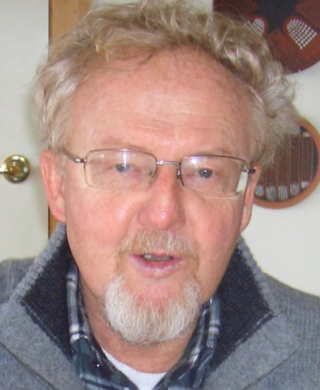
Norman Barnett Tindale AO was an Australian anthropologist, archaeologist, entomologist and ethnologist.
Jukun or Djugun is an Australian Aboriginal language of Western Australia. There are no longer any fluent speakers of Jukun, but some people may remember it to some degree. It is an Eastern Nyulnyulan language, closely related to Yawuru.
The Djukun are an Aboriginal Australian people of the Kimberley region of Western Australia.
Jawi or Djawi or Djaui, is a nearly extinct dialect of the Bardi language of Western Australia, the traditional language of the Jawi people. There are no longer any known fluent speakers, but there may be some partial speakers.
The Yawuru, also spelt Jawuru, are an Aboriginal Australian people of the Kimberley region of Western Australia.

The Nyikina people are an Aboriginal Australian people of the Kimberley region of Western Australia.
The Jabirr Jabirr language, also known as Djabirr-Djabirr, is a Western Nyulnyulan language formerly spoken by the Jabirr Jabirr people on the coast south of Beagle Bay in Western Australia. Earlier sources spelled the name DjaberrDjaberr or Dyaberdyaber; the contemporary accepted spelling is Jabirr-Jabirr, which reflects the spelling conventions of languages of the Kimberley region. It is also sometimes spelt Jabba Jabba.
Djarindjin is a medium-sized Aboriginal community located 170 km (110 mi) north of Broome in the Kimberley region of Western Australia, within the Shire of Broome. It is within the traditional lands of the Bardi and Jawi peoples.

The Bardi people, also spelt Baada or Baardi and other variations, are an Aboriginal Australian people, living north of Broome and inhabiting parts of the Dampier Peninsula in the Kimberley region of Western Australia. They are ethnically close to the Jawi people, and several organisations refer to the Bardi Jawi grouping, such as the Bardi Jawi Niimidiman Aboriginal Corporation Registered Native Title Body and the Bardi Jawi Rangers.
Helmut Petri was a German anthropologist.
The Nangatara are an Aboriginal Australian people of Western Australia.
The Miriwoong people, also written Miriwung and Miriuwung, are an Aboriginal Australian people of the Kimberley region of northern Western Australia.
The Jawi people, also spelt Djaui, Djawi, and other alternative spellings, are an Aboriginal Australian people of the Kimberley coast of Western Australia, who speak the Jawi dialect. They are sometimes grouped with the Bardi people and referred to as "Bardi Jawi", as the languages and culture are similar.
The Yawijibaya, also written Jaudjibaia, are an Aboriginal Australian people of the Kimberley region of northern Western Australia. Along with the Unggarranggu people, they are the traditional owners of the Buccaneer Archipelago, off Derby, together known as the Mayala group for native title purposes. Yawijibaya country includes Yawajaba Island and the surrounding Montgomery Reef.
The Kukatja people, also written Gugadja, are an Aboriginal Australian people of the Kimberley region of Western Australia.
The Jabirr Jabirr are an Aboriginal Australian people of the Kimberley region of Western Australia.
The Ngombal, also known as the Ngumbarl, are an Aboriginal Australian people of Western Australia.

The Nyulnyul, also spelt Nyul Nyul, Njolnjol, Nyolnyol and other variants, are an Aboriginal Australian people of the Kimberley region of Western Australia.

The Luritja or Loritja people, also known as Kukatja or Kukatja-Luritja, are an Aboriginal Australian people of the Northern Territory. Their traditional lands are immediately west of the Derwent River, that forms a frontier with the Arrernte people, with their lands covering some 27,000 square kilometres (10,300 sq mi). Their language is the Luritja dialect, a Western Desert language.

Erich Kolig is an Austrian–New Zealand cultural and social anthropologist whose research has focussed on Muslim and Islamic social and religious issues, and Australian Aboriginal culture. He has written and edited 13 books, as well as publishing many scientific papers and book chapters.



